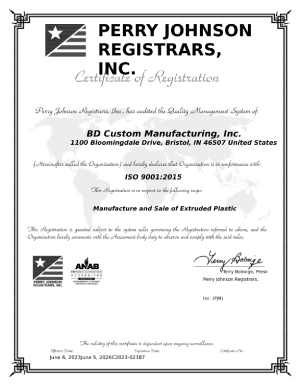Custom-Extruded Plastic Channel Manufacturer and Supplier
Leave a CommentSince 1993, BD Custom Manufacturing has consistently worked hard to create quality multiple plastic extrusion products of various specifications that exceed our clients’ expectations. Plastic extrusion is a high-volume manufacturing procedure involving very small pellets called resins, which are fed into a machine where they are slowly heated and melted into a continuous profile. Also, plastic extrusions can be of extremely short lengths of less than 250” or they can be spooled into lengths of about 1,000 feet or more.
BD Custom Manufacturing uses plastic extruders to create various products for different applications. This process is also popular in many manufacturing usages, since it allows for large productions at a low cost. This process creates items such as weather stripping, plastic sheeting, window frames, custom profiles, wire insulation, piping, and tubing. Keep reading for more insights.
Custom Extruded Plastic Capabilities
Custom plastic extrusion is the backbone of various plastic extrusion technologies. You can get unique, customized plastic designs, profiles, and solutions from BD Custom Manufacturing, which will meet each of your plastic extrusion and tubing needs. Here are some of the plastic channel’s capabilities.
Plastic U Channel: As the name suggests, this extruder is three-sided and has a U shape. You can use plastic U channels in several applications, such as sliding track, capping, and edging trim for panels and boards. Plastic channel trims can effectively cover uneven or unsightly edges, giving you a neat, smooth finish.
U channel LED lighting tubing: This U-shaped LED lighting tubing can accommodate LED ribbons, strips, or tapes and is easy to secure. The tubing is UV stabilized and diffused, so it is a perfect fit for several applications such as under-cabinet lighting, furniture compartments, stairsteps, stair rails, edge lighting, and more.
Plastic capping channel – L, C, H, I: Based on OEM fabrication, BD Custom Manufacturing produces multiple shapes for various specifications of plastic capping channels, such as L, C, H, and I. You can get these channels in multiple lengths and colors based on your requirements.
Special PVC channel – C channel: Through PVC channel molding, you can get multiple shapes of plastic capping channels like C, H, and L based on the OEM fabrication. You can use this single plastic channel as a trim on panels and boards or as an edging protector.
U-shaped PVC channel: Based on OEM fabrication, BD Custom Manufacturing produces different plastic PVC U-channel shapes that you can use as an edging protector.
White UV stabilized rigid PVC U channel: This PVC channel is used as a decorative edging for glass displays, posters, custom signage, and more. You can get it in varying lengths and colors to suit your needs. Both indoor and outdoor uses are appropriate since this channel is a good abrasion and is also self-extinguishing.
Materials, Applications, and Industries
You can get multiple extrusion materials from BD Custom Manufacturing, including:
- PVC
- Polypropylene
- Polystyrene
- Polyethylene
- Custom compounds
- HIPS
- ABS
- TPU
- TPV
- TP
- TPE
Application of Extrusion Products
Extrusion plastic profiles are vital in the production of a myriad of products used in various industries and applications. Some of the most common areas where plastic extrusion is used include:
- HVAC parts
- Automotive parts
- Food and beverage industry
- Appliance parts
- Construction elements
- Plumbing materials
- Chemical processing
Industries that utilize extrusion products include:
- Mobile electrification systems
- Furniture and upholstery
- Lighting
- Store fixtures
- Data transfer systems
- Point of purchase
Contact BD Custom Manufacturing for the Best Custom-Extruded Plastic Products
You can get custom-extruded products in various shapes, sizes, and colors to suit your needs. Plastic C-channel extrusion and PVC U channel are among the most popular designs used to provide protective edges. These products are available in different materials and are utilized in multiple applications and industries since they can be customized to suit an array of needs.
BD Custom Manufacturing produces precise plastic channels that meet the specific requirements of every customer. We have an experienced team who is keen on details and who delivers the highest quality extruded plastic channels. Reach out to us for more information about our capabilities for custom-extruded items and more or send us a request for quotation.


